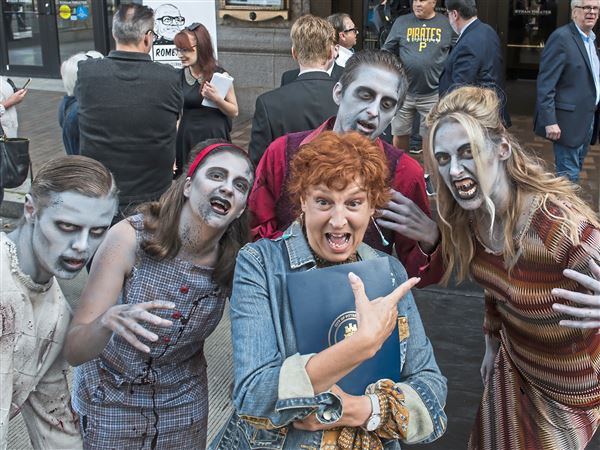RANDOLPH, N.J. -- As his history class at County College of Morris here discussed exploration of the New World, Philip Garber Jr. raised his hand, hoping to ask why China's 15th-century explorers, who traveled as far as Africa, had not also reached North America.
He kept his hand aloft for much of the 75-minute session, but the professor did not call on him. She had already told him not to speak in class.
Mr. Garber, a precocious and confident 16-year-old who is taking two college classes this semester, has a lot to say but also a profound stutter that makes talking difficult, and talking quickly impossible. After the first couple of class sessions, in which he participated actively, the professor, an adjunct named Elizabeth Snyder, sent him an email asking that he pose questions before or after class, "so we do not infringe on other students time."
As for questions she asks in class, Ms. Snyder suggested, "I believe it would be better for everyone if you kept a sheet of paper on your desk and wrote down the answers."
Later, he said, she told him, "Your speaking is disruptive."
Unbowed, Mr. Garber reported the situation to a college dean, who suggested that he transfer to another teacher's class, where he has been asking and answering questions again.
While Mr. Garber's case is unusual, stuttering is not: About 5 percent of people stutter at some point, and about 1 percent stutter as adults, according to the National Institutes of Health.
His classroom experience underlines a perennial complaint among stutterers: Society does not recognize the condition as a disability. And it touches on an age-old pedagogical -- and social -- theme: the balance between the needs of an individual and the good of a group.
"As we do with all students seeking accommodations, we have taken action to resolve Philip's concerns, so he can successfully continue his education," said Kathleen Brunet Eagan, the college's communications director.
She would not say whether Ms. Snyder, who declined to discuss the matter, had been disciplined, but noted that the college "strives to educate faculty and staff on how to accommodate students."
For Mr. Garber, who has spent most of his life being home-schooled or attending a small charter school, it was a surprise and a disappointment. "I've never experienced any kind of discrimination," he said, "so for it to happen in a college classroom was quite shocking."
Jim McClure, a board member of the National Stuttering Association and its spokesman, said Mr. Garber's experience is unusual -- because most stutterers avoid speaking in class. "Teachers ignore them or have to coax them to speak out," Mr. McClure said. "The fact that this guy wants to participate is a really healthy sign."
First Published: October 16, 2011, 4:00 a.m.















